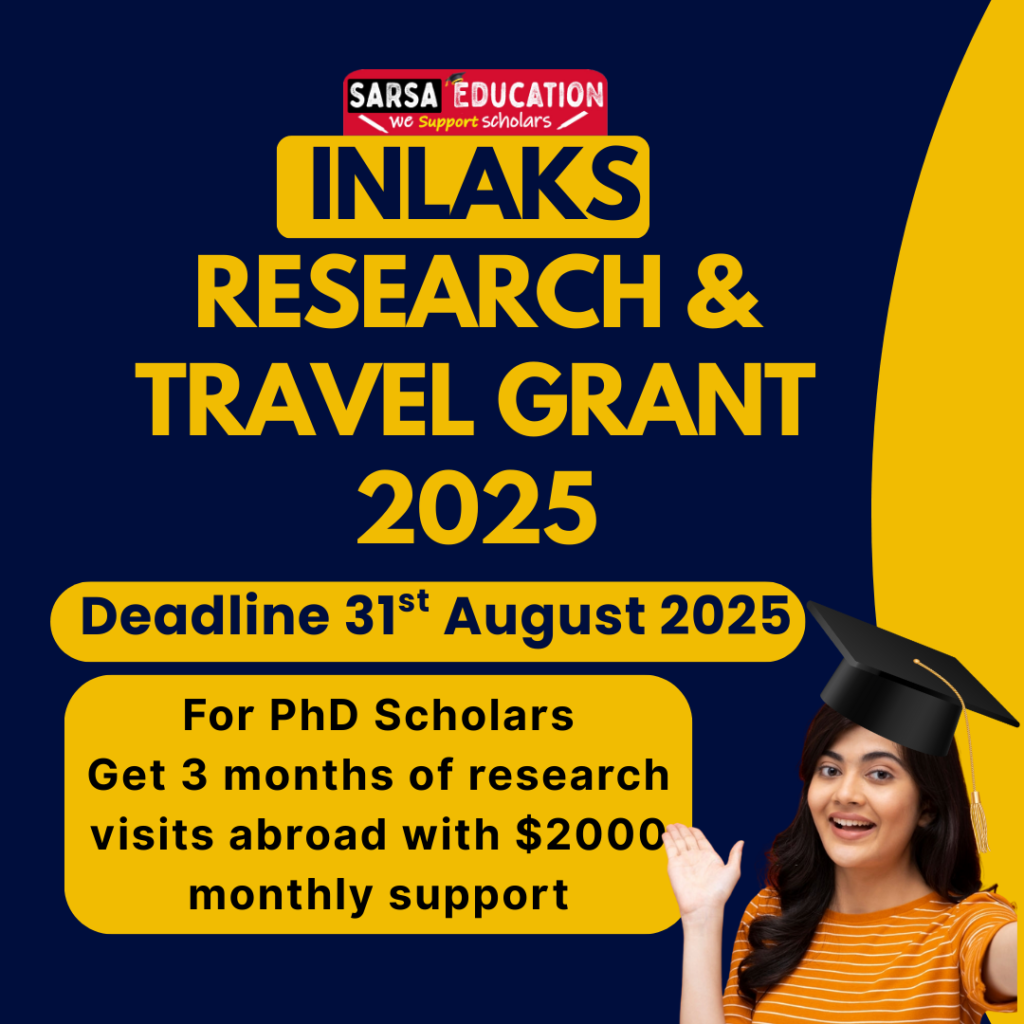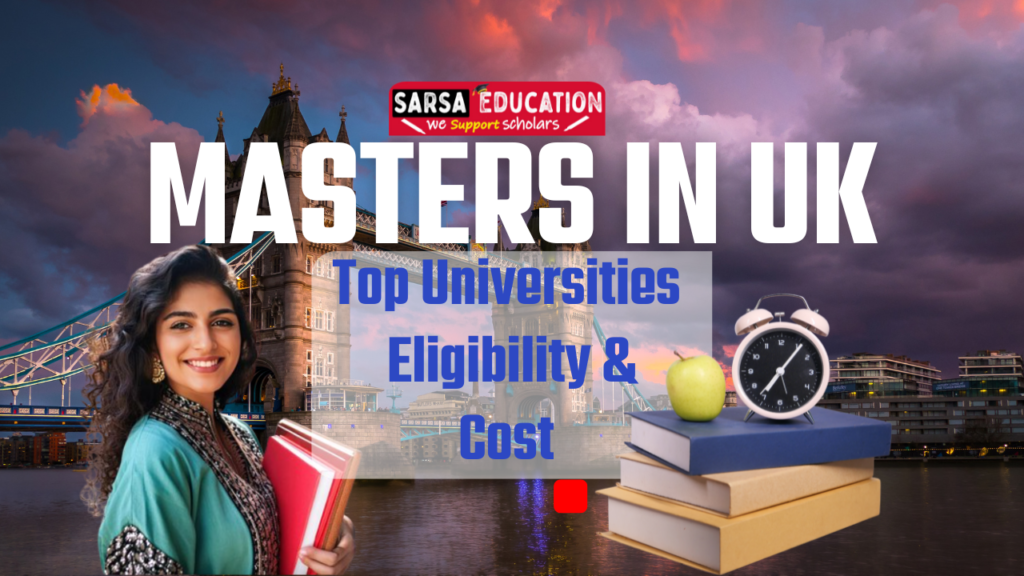Eligibility Criteria for Global Fellowships often serve as the first filter in the competitive selection process. While each fellowship program has its unique set of requirements, many share common standards across countries and institutions. Typically, these criteria include factors such as academic background, professional experience, leadership potential, language proficiency, and alignment with the fellowship’s mission or area of focus. Some fellowships are tailored specifically for students or early-career professionals, while others target mid-career experts or individuals working in specific sectors like public policy, education, or technology. Understanding these requirements is essential, as it helps you determine your fit and tailor your application accordingly. This article will break down these general eligibility standards and offer tips on how to position yourself as a strong candidate—whether you’re a student, researcher, early-career professional, or social impact leader.
Contents
What Are Global Fellowships?
Global fellowships are competitive programs designed to support individuals—often students, professionals, or researchers—who want to work, study, or conduct research abroad. They often cover tuition, travel, living costs, and provide access to world-class mentorship and networks.
Examples include the Rhodes Scholarship, Fulbright Program, Chevening Scholarships, DAAD Fellowship, Erasmus Mundus, and many more.
But before you apply, it’s essential to understand the eligibility criteria for global fellowships.
Common Eligibility Criteria for Global Fellowships
Although specific fellowships may have unique requirements, most of them share some common eligibility parameters. Let’s explore them in detail:
1.Academic Qualification
- Almost all fellowships require a strong academic background. This usually means:
- A minimum GPA or grade equivalent (varies by program).
- A relevant degree (Bachelor’s, Master’s, or Ph.D.) from an accredited institution.
- Transcripts and academic references.
- Some fellowships may prioritize academic excellence more heavily than others.
2. Age Limit
- Many global fellowships come with an age limit.
- Some programs require candidates to be under 30 or 35.
- Others may accept applicants of all ages, especially professional or research fellowships.
- Always check the specific fellowship’s guidelines regarding age.

3. Work Experience
Certain fellowships, especially leadership and professional ones, require:
- 2 to 5 years of work experience in a relevant field.
- Demonstrated leadership or community engagement.
For example, the Chevening Scholarship emphasizes leadership potential and professional background.
4. Language Proficiency
If the fellowship is hosted in a country where the language is different from yours, you’ll likely need to prove language proficiency. This includes:
- TOEFL or IELTS for English-speaking countries.
- DELF/DALF for French programs.
- Other language tests depending on host country.
- Language test results must often be recent—usually within 2 years.
5. Citizenship or Nationality
Most global fellowships are open only to citizens of specific countries. For example:
- Fulbright offers country-specific programs.
- Rhodes has country-specific eligibility streams.
- Some fellowships are open to all nationalities, while others restrict based on diplomatic relations, funding sources, or target groups.
6. Purpose and Motivation
Many fellowships assess your:
- Motivation letter or personal statement.
- Clarity of goals and how the fellowship fits into your long-term plans.
- Passion for impact, leadership, and global issues.
- They want to know what you’ll do after the fellowship ends.
7. Research Proposal or Study Plan
If applying for academic or research fellowships, you may need to submit:
- A detailed research proposal.
- A clear study plan outlining how you’ll use the fellowship opportunity.
- Make sure it aligns with the host institution’s strengths and current global challenges.
8. Letters of Recommendation
Strong recommendation letters are often required. These should come from:
- Professors, academic advisors, or employers.
- People who can vouch for your character, achievements, and potential.
- Choose recommenders who know you well and can write in detail.
9. Community Involvement or Leadership
Many fellowships value applicants who:
- Have made a positive impact in their community.
- Shown leadership in any field—academia, non-profit, business, etc.
- This demonstrates a commitment to change, which is a key quality for global fellows.
10. Health and Character Requirements
You may also need to:
- Pass a medical exam.
- Provide a police clearance certificate or similar background check.
- These are often necessary for visa processing and institutional policies.
💡 Tips for Meeting Fellowship Eligibility Criteria
- Start Early – Begin researching fellowships 6–12 months before deadlines.
- Check Specific Requirements – Visit the official website of each fellowship.
- Improve Your Profile – Gain experience, volunteer, or take language tests.
- Network with Alumni – Learn from their journeys and get advice.
- Tailor Each Application – Don’t copy-paste. Customize your documents.
- Keep Documents Ready – Transcripts, certificates, ID, and test scores.
📌 Final Statement:
Understanding the eligibility criteria for global fellowships is the first step to securing one. By preparing well and ensuring your qualifications match the program’s requirements, you’ll increase your chances significantly. Remember, fellowships aren’t only about academic brilliance—they also seek people who are passionate, curious, and committed to making a difference.
Keep exploring opportunities, stay motivated, and don’t hesitate to apply more than once if needed. Your global journey might just be one application away!
Important Links:
- Benefits of Online MBA
- MBBS Abroad with Scholarships
- Study in Germany for free for Indian Students
- Masters in UK Fully Funded
Frequently Asked Questions(FAQs):
1. What are the general eligibility criteria for global fellowships?
The general Eligibility Criteria for Global Fellowships usually include a combination of academic qualifications, work experience, nationality, language proficiency, and leadership potential. Most global fellowships are aimed at early- to mid-career professionals who demonstrate a commitment to public service, research, innovation, or community leadership. Candidates often need to hold a bachelor’s or master’s degree, meet age requirements, and possess a strong track record of achievements in their field. However, specific criteria vary by program, so it’s essential to carefully review the details provided by each fellowship.
2. Do I need to have a graduate degree to meet the eligibility criteria for global fellowships?
While some programs do require a graduate degree, many fellowships accept applicants with only an undergraduate degree, especially if they have strong work experience or leadership accomplishments. The Eligibility Criteria for Global Fellowships often emphasize not just formal education but also professional experience and potential impact. For example, fellowships like the Fulbright may require a completed undergraduate degree, while others such as the Chevening or Rhodes may expect graduate-level academic preparation.
3. Are there age restrictions in the eligibility criteria for global fellowships?
Yes, many fellowships have age restrictions as part of their Eligibility Criteria for Global Fellowships. These age limits vary widely by program. Some fellowships are specifically designed for young professionals under 35, while others may accept applicants up to the age of 45 or older. The intention is usually to support individuals at a certain career stage where the fellowship can have the most impact on their professional development and leadership trajectory.
4. Can non-citizens apply for global fellowships?
Citizenship or residency requirements are often a significant part of the Eligibility Criteria for Global Fellowships. Some fellowships are open only to citizens of specific countries or regions, while others are open globally. For instance, the DAAD scholarships are often limited to certain nationalities, while fellowships like the Mandela Washington Fellowship are available only to Africans. Always check the nationality requirement before applying.
5. Is work experience required for global fellowships?
Work experience is commonly part of the Eligibility Criteria for Global Fellowships, especially for those designed for mid-career professionals. Some programs may ask for 2-5 years of relevant experience in areas like education, public health, nonprofit leadership, or technology. Experience demonstrates your readiness to apply the skills learned during the fellowship and your ability to lead or contribute to change after the program ends.
6. How important is English proficiency in meeting the eligibility criteria for global fellowships?
For fellowships based in English-speaking countries or conducted in English, proficiency in the language is essential and often mandatory in the Eligibility Criteria for Global Fellowships. Most programs require proof of language ability through standardized tests like TOEFL or IELTS, unless you are from an English-speaking country or studied in English. Clear communication is critical for collaboration, coursework, and community engagement during the fellowship.
7. Are academic achievements a major part of eligibility criteria for global fellowships?
Yes, academic performance is often considered in the Eligibility Criteria for Global Fellowships, though not always the only or most important factor. Many fellowships look for a balance between academic excellence, leadership, and service. Having strong grades, honors, or research can strengthen your application, but fellowships also value real-world impact, creative thinking, and passion for social change.
8. Can someone with a non-traditional background meet the eligibility criteria for global fellowships?
Absolutely. Many programs are becoming more inclusive and recognize that impactful individuals come from all walks of life. The Eligibility Criteria for Global Fellowships often focus on what you’ve done with the opportunities you’ve had, rather than expecting a traditional academic or career path. If you have shown leadership, creativity, or resilience in unique ways, you can still be a strong candidate.
9. Do fellowships have specific field or subject eligibility requirements?
Some fellowships are open to all disciplines, while others are tailored for specific areas like public health, climate change, education, or technology. As part of the Eligibility Criteria for Global Fellowships, the subject area of your expertise may need to align with the goals of the fellowship. For example, a fellowship focused on global health will prioritize applicants with a background in medicine, health policy, or community health work.
10. Are letters of recommendation required as part of the eligibility process?
Yes, many fellowships include letters of recommendation in their Eligibility Criteria for Global Fellowships. These letters help assess your character, leadership qualities, and suitability for the program. You’ll typically need references from academic mentors, employers, or community leaders who can speak to your impact and potential. These endorsements are a critical part of your overall application package.
11. Can students currently enrolled in university apply for global fellowships?
Some fellowships are open to current students, particularly those in their final year of undergraduate or graduate study. However, many programs include in their Eligibility Criteria for Global Fellowships that applicants must have completed their degree by the time the fellowship starts. Make sure to check the timeline and academic requirements of each program before applying.
12. Is leadership experience necessary to meet the eligibility criteria for global fellowships?
Leadership experience is highly valued and often explicitly mentioned in the Eligibility Criteria for Global Fellowships. Whether you’ve led a student group, community project, business initiative, or advocacy campaign, demonstrating leadership helps show your capacity to influence and drive change. Many fellowships aim to invest in future leaders, so they look for candidates who’ve already begun to lead in meaningful ways.
13. Are global fellowships open to people with disabilities?
Yes, many fellowships strive to be inclusive and accessible. The Eligibility Criteria for Global Fellowships typically do not discriminate against applicants with disabilities, and several programs actively encourage applications from people with diverse abilities. Some fellowships also provide accommodations or support during the application and participation phases to ensure accessibility for all qualified individuals.
14. Do I need to have a certain GPA to qualify for global fellowships?
Some fellowships set a minimum GPA requirement, but this varies widely. While GPA can be one of the Eligibility Criteria for Global Fellowships, it’s rarely the only one. A strong overall profile—with leadership experience, community involvement, and compelling goals—can sometimes compensate for a lower GPA. Always check the specific academic requirements of the fellowship you’re interested in.
15. Can entrepreneurs apply for global fellowships?
Yes, many fellowships welcome entrepreneurs, especially those who have launched social enterprises or innovative ventures. The Eligibility Criteria for Global Fellowships often value entrepreneurial thinking, problem-solving skills, and the ability to implement impactful solutions. If you’re an entrepreneur making a difference in your community or industry, you could be a strong candidate for many global fellowships.
16. Are global fellowships open to people from all income levels?
Yes, fellowships are generally designed to be inclusive, and many explicitly state in their Eligibility Criteria for Global Fellowships that they are need-blind or provide financial support. In fact, many global fellowships cover travel, tuition, housing, and stipends, so that financial constraints do not prevent talented individuals from participating.
17. Can someone with a criminal record apply for global fellowships?
This depends on the specific program. Some fellowships may include character assessments or background checks as part of their Eligibility Criteria for Global Fellowships, particularly if the fellowship involves government affiliations or international travel. That said, each case is unique, and individuals with compelling stories of rehabilitation or impact may still be considered.
18. Do I need international experience to meet the eligibility criteria for global fellowships?
While international experience is a plus, it is not always a requirement in the Eligibility Criteria for Global Fellowships. Many fellowships are designed to provide that global exposure, especially to those who haven’t had it yet. What matters more is your openness to cross-cultural learning and your motivation to contribute globally.
19. Are there fellowships open to people changing careers?
Yes, career changers are welcome in many programs. The Eligibility Criteria for Global Fellowships typically emphasize your potential for leadership and impact rather than your current job title. If you can demonstrate that the fellowship aligns with your new goals and that you bring transferable skills and passion, your application will still be strong.
20. Can I apply to multiple global fellowships at once?
Yes, you can apply to multiple fellowships as long as you meet the Eligibility Criteria for Global Fellowships for each one. However, be prepared to tailor your application for each program and manage the timelines carefully. It’s also important to note that if you receive multiple offers, you may be required to choose one due to overlapping commitments.
For National/International Scholarship updates kindly join our WhatsApp channel
Follow the Sarsa Education channel on WhatsApp: https://whatsapp.com/channel/0029VaL9SgRAjPXJthnK9D0E
For regular Scholarship/Fellowship/Internship updates:
Join our Telegram channel: Sarsa Education





